On September 25, 2024, the ‘Song-zexing Memorial University Lectures by Overseas Prestigious Scholars’ (20th lecture) of Liaoning University was held in the Academic Lecture Hall of the Chongshan Campus Library. Professor Wang Xingjun, Vice Dean of the School of Electronics at Peking University, was invited to deliver an academic report titled ‘Optoelectronic Integrated Chips and Communication Systems’.
Yu Miaojie, Deputy Secretary of the Party Committee and President of Liaoning University, attended the report meeting and delivered a welcome speech, while Vice President Qiu Huanguang attended the report meeting. Yang Chenggang, Secretary of the Party Committee of the School of Information at Liaoning University, Ding Linlin, Deputy Director of the School of Information and Dean of the School of Information, Wang Yan, Deputy Dean of the School of Network and Information Security, and Zhao Zhongzhou, Director of the Science and Technology Cooperation and Technology Transfer Department of the Institute of Science and Technology, also attended the report meeting. The report wwas chaired by Vice President Qiu Huanguang.
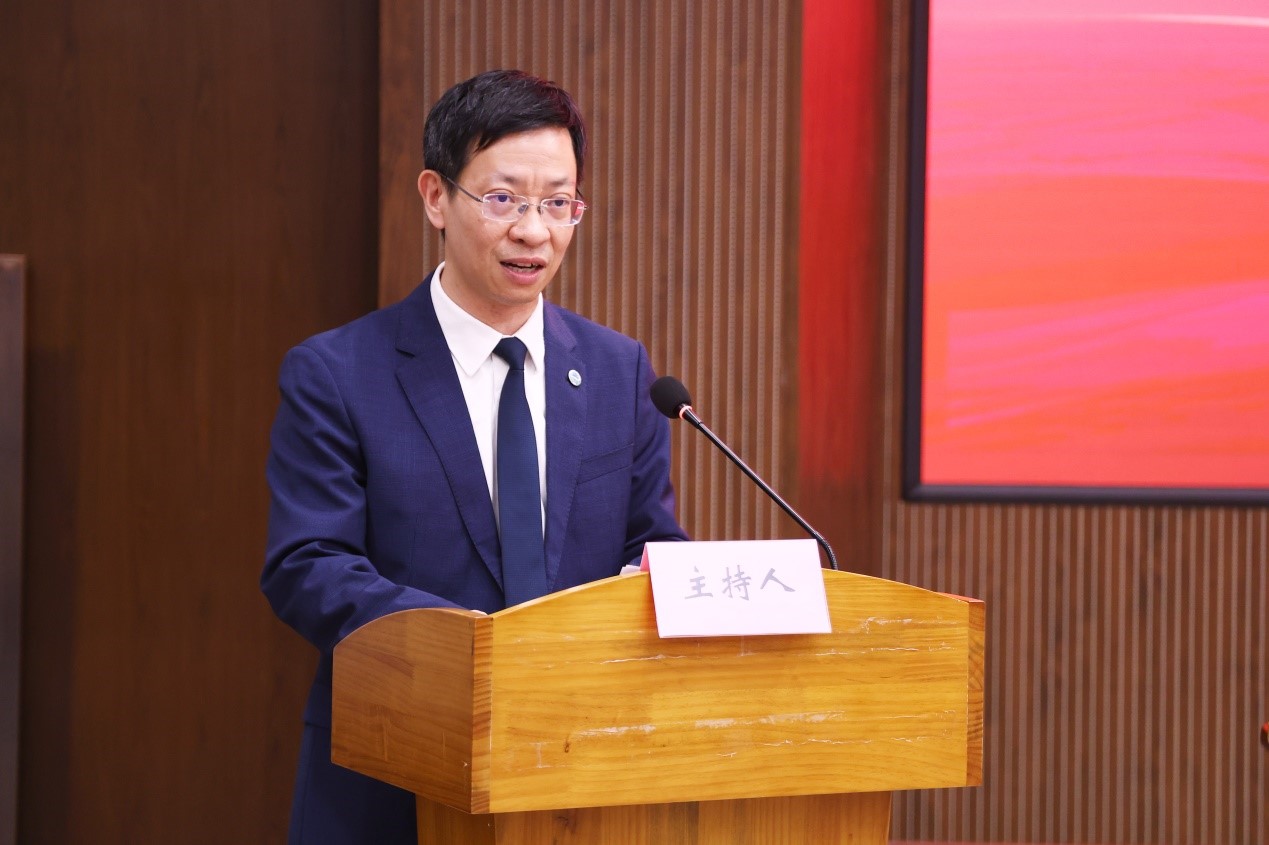
President Yu Miaojie first warmly welcomed Professor Wang Xingjun for giving the lecture, and introduced Professor Wang Xingjun's disciplinary background, work experience, and rich academic achievements to the attending teachers and students. He expressed hope that teachers and students would make good use of the opportunity, strengthen communication and interaction, understand the latest academic trends in related fields, and focus on improving their academic literacy.
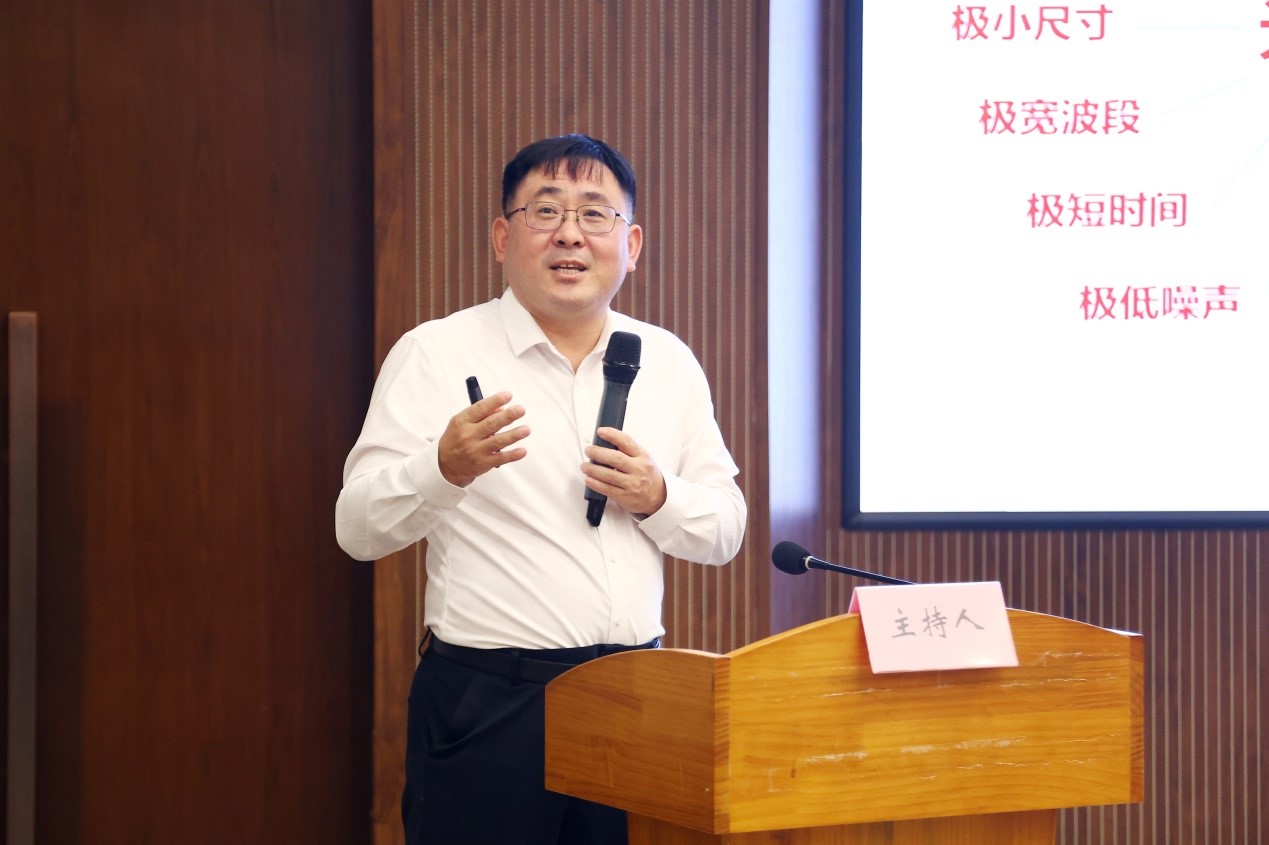
At the report meeting, Professor Wang Xingjun discussed the relationship between basic research and technological innovation. He talked about the development trend of silicon-based optoelectronic integration, which presents large capacity, ultra band width, arrayed, multifunctional, and systematic. He focused on the research work of the team on the three key scientific and technological issues of large capacity parallelization, high resolution and high sensitivity, and ultra band width integration in silicon-based optoelectronic integrated chips. He also spoke on related research that achieved the lowest power threshold optical frequency comb light source on the silicon substrate, and broke through a series of key technologies such as integrated light source pumping, key switch, and long-term automatic feedback stability to complete high-capacity signal transmission. The report will be at the international forefront of optoelectronic integration, easy to understand, detailed in content, and of high academic value. It will broaden the horizons of academic research for teachers and students and build a learning and exchange platform.
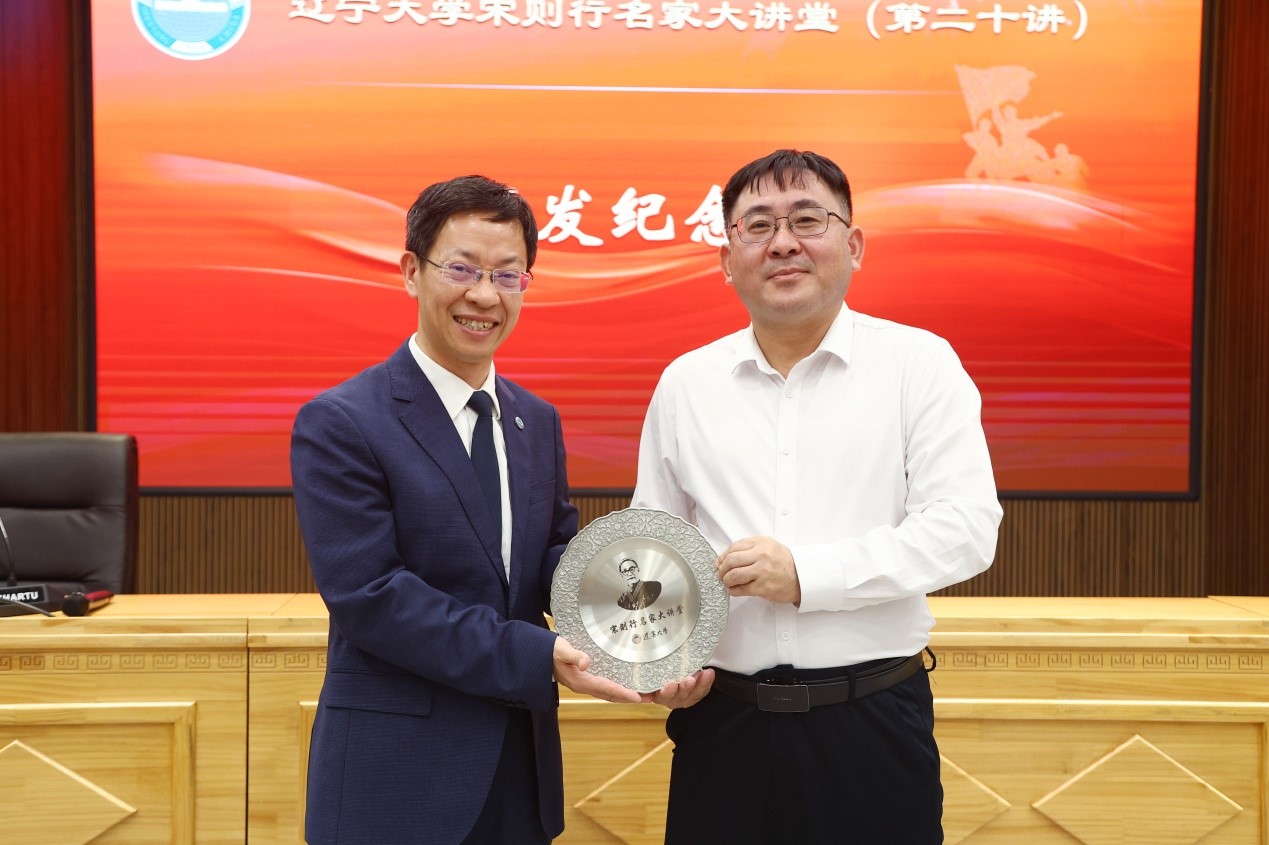
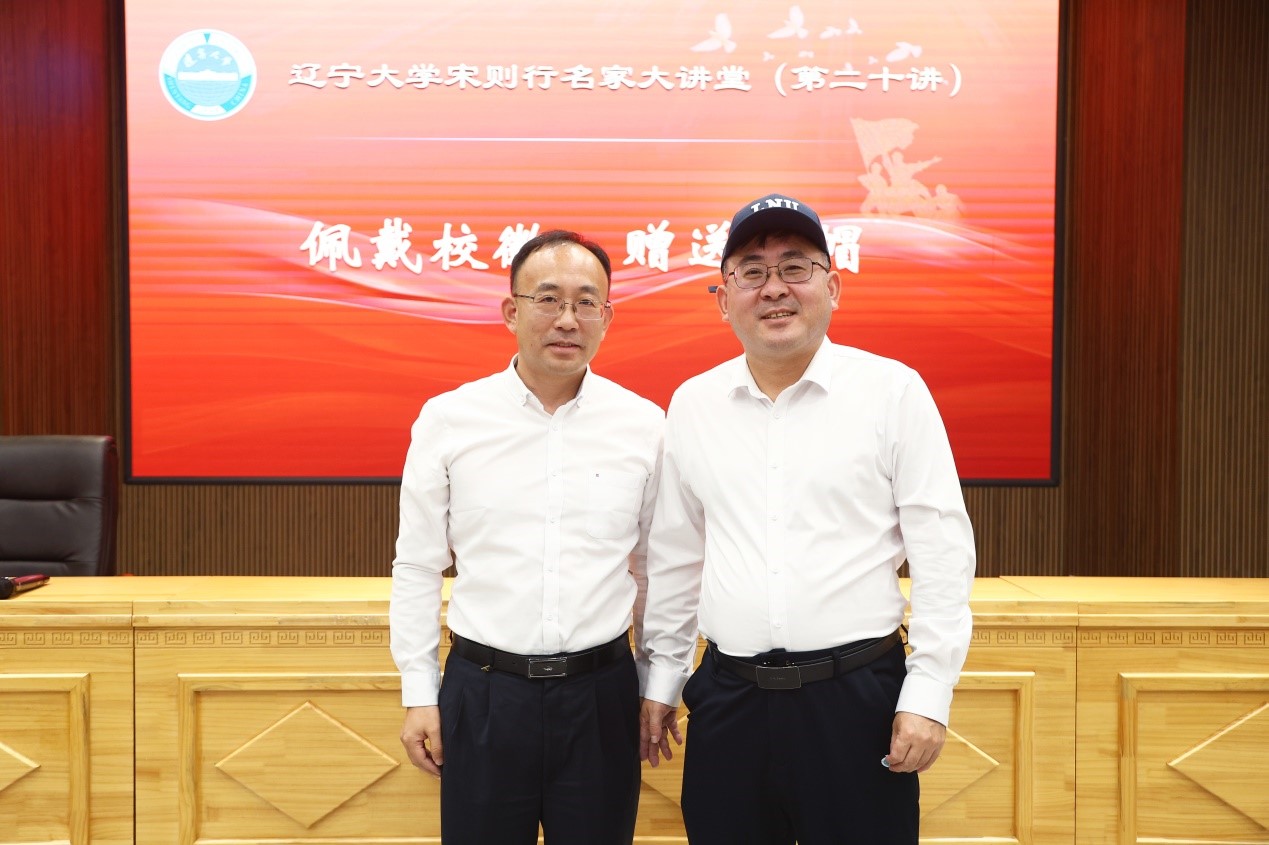
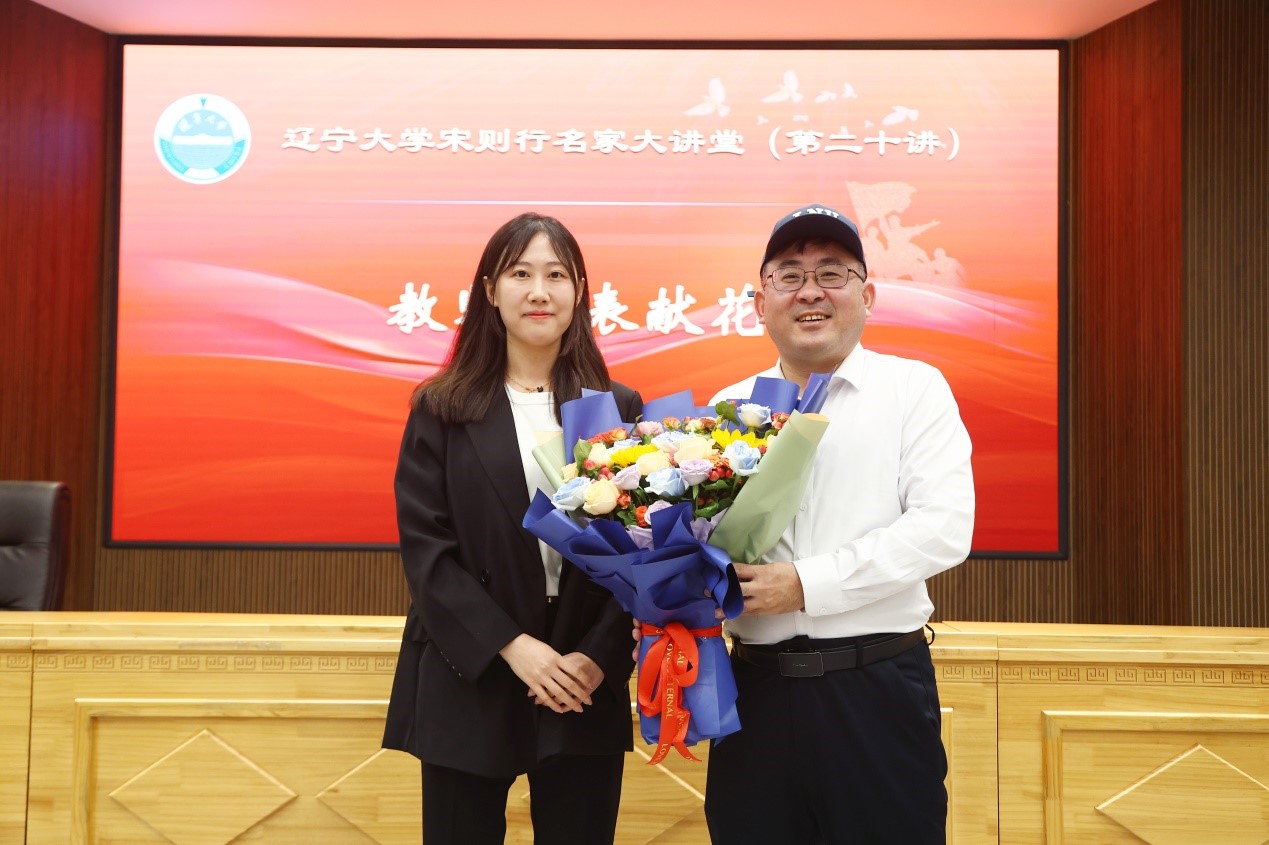
After the report, Yu Miaojie, on behalf of Liaoning University, presented Professor Wang Xingjun with a commemorative plate of the ‘Song-zexing Memorial University Lectures by Overseas Prestigious Scholars’. Qiu Huanguang wore the school emblem and gifted a school hat to Professor Wang Xingjun. Xu Yingwei, a representative of the Information Science Department, presented flowers to Professor Wang Xingjun.
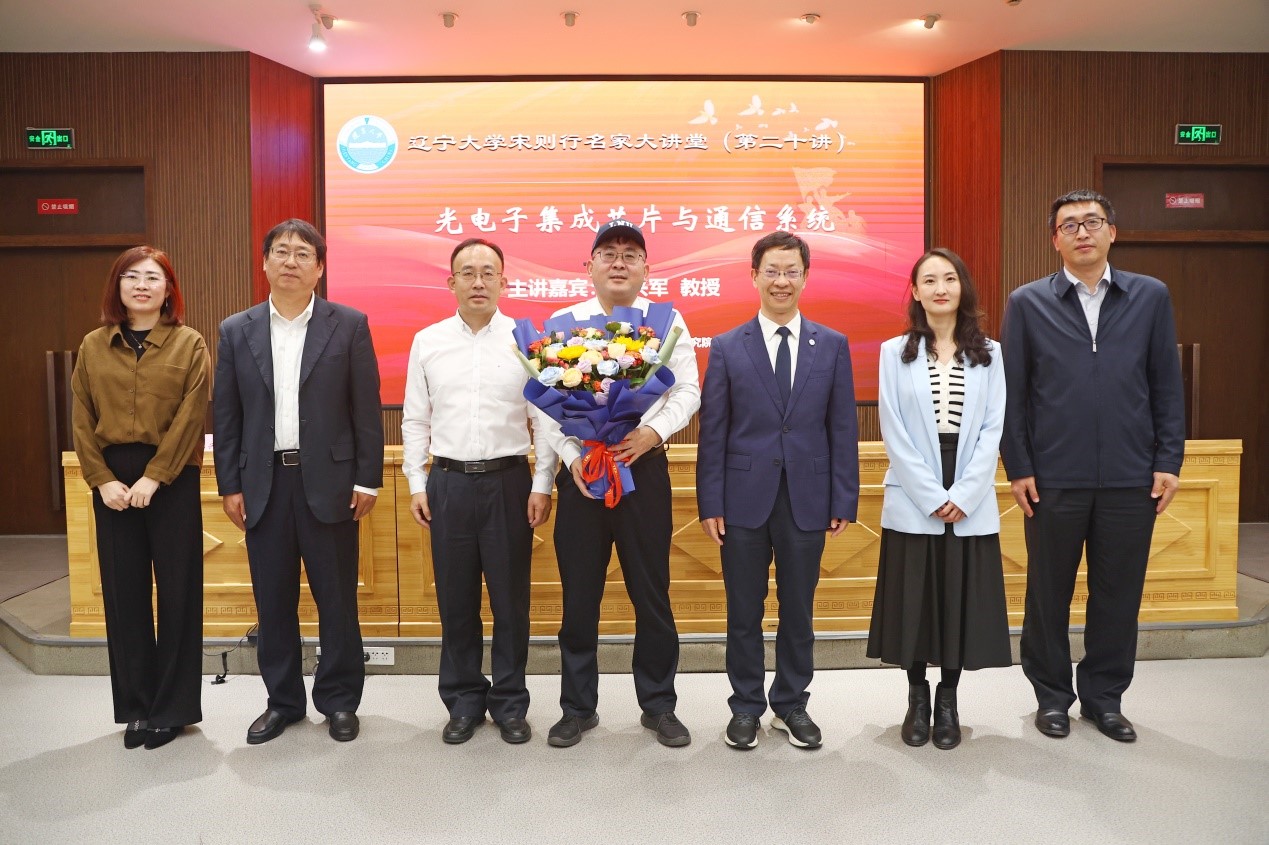
The report conference was hosted by the Institute of Science and Technology of Liaoning University and organized by the Department of Information Science and the School of Physics. Nearly 150 representatives from the Department of Information Science and the School of Physics attended the conference.
Professor Wang Xingjun: biography
Professor Wang Xingjun is currently a distinguished professor and doctoral supervisor of Peking University Boya, vice dean of the School of Electronics, member of the Discipline Review Group of the State Council, the OSA Fellow, member of the Chinese Society for Optical Engineering, deputy director of the State Key Laboratory for Regional Optical Fiber Communication Networks and New Optical Communication Systems, chief of key research and development programs of the Ministry of Science and Technology, and director of major instruments and key projects of the National Natural Science Foundation of China.
Professor Wang Xingjun's team has been committed to the research of optoelectronic chips and information systems for many years and has achieved a series of research results in silicon-based optoelectronic integrated chips, as well as system applications such as optical communication, optical sensing, microwave photonics, and optical computing. As the first/corresponding author, he has published over 200 papers in high-level journals such as Nature, Nature Photonics, Nature Communications, Light Science & Applications, Science Advances, Advanced Photonics, and over 50 papers in top industry academic conferences such as OFC and CLEO. He is SCI-cited over 5000 times; authorized over 40 invention patents; and more than 50 international conferences such as OFC, CLEO, OECC, ACP have invited presentations. His achievements have been selected for awards such as China's Top Ten Science and Technology Innovation Awards, China's Top Ten Advances in Optics, China's Top Ten Science and Technology Advances in Information and Communication, China's Top Ten Social Impact Events in Optics, and China's Top Ten Advances in Chip Science.